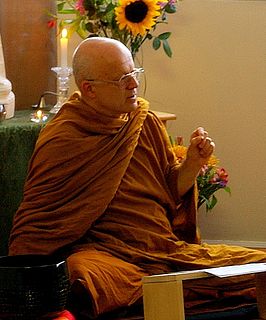A Quote by Carl Holmes
Kindness isn't sacrifice so much as it is being considerate for the feelings of others, sharing happiness, the unselfish thought, the spontaneous and friendly act, forgetfulness of our own present interests.
Related Quotes
One who is kind is sympathetic and gentle with others. He is considerate of others feelings and courteous in his behavior. He has a helpful nature. Kindness pardons others? weaknesses and fault. Kindness is extended to all--to the aged and the young, to animals, to those low of stations as well as the high.
One who is kind is sympathetic and gentle with others. He is considerate of others' feelings and courteous in his behavior. He has a helpful nature. Kindness pardons others' weaknesses and faults. Kindness is extended to all - to the aged and the young, to animals, to those low of station as well as the high.
I do not see why the axiom of Prudence should not be questioned, when it conflicts with present inclination, on a ground similar to that on which Egoists refuse to admit the axiom of Rational Benevolence. If the Utilitarian has to answer the question, 'Why should I sacrifice my own happiness for the greater happiness of another?' it must surely be admissible to ask the Egoist 'Why should I sacrifice a present pleasure for a greater one in the future? Why should I concern myself about my own future feelings any more than about the feelings of other persons?'
We begin from the recognition that all beings cherish happiness and do not want suffering. It then becomes both morally wrong and pragmatically unwise to pursue only one's own happiness oblivious to the feelings and aspirations of all others who surround us as members of the same human family. The wiser course is to think of others when pursuing our own happiness.
It is important to reflect on the kindness of others. Every aspect of our present well-being is due to others' hard work. The buildings we live and work in, the roads we travel, the clothes we wear, and the food we eat, are all provided by others. None of them would exist but for the kindness of so many people unknown to us.
The church for too long has followed Casper, the friendly ghost instead of seeking the fire of the Holy Spirit. We have turned limp at the thought of our own cross; we faint when we think of suffering or sacrifice. Beloved, it is time to embrace the fire of God's Presence. It is the fire that purifies our sacrifice.
The great have private feelings of their own, to which the interests of humanity and justice must curtsy. Their interests are so far from being the same as those of the community, that they are in direct and necessary opposition to them; their power is at the expense of OUR weakness; their riches of OUR poverty; their pride of OUR degradation; their splendour of OUR wretchedness; their tyranny of OUR servitude.
Right from the moment of our birth, we are under the care and kindness of our parents, and then later on in our life when we are oppressed by sickness and become old, we are again dependent on the kindness of others. Since at the beginning and end of our lives we are so dependent on other's kindness, how can it be in the middle that we would neglect kindness towards others?
The teaching on karma starts with the principle that people experience happiness and sorrow based on a combination of their past and present intentions. If we act with unskillful intentions either for ourselves or for others, we’re going to suffer. If we act with skillful intentions, we’ll experience happiness. So if we want to be happy, we have to train our intentions to always be skillful.































